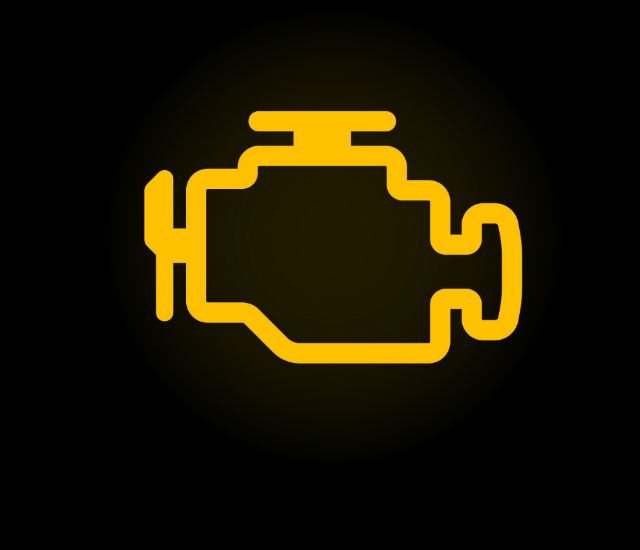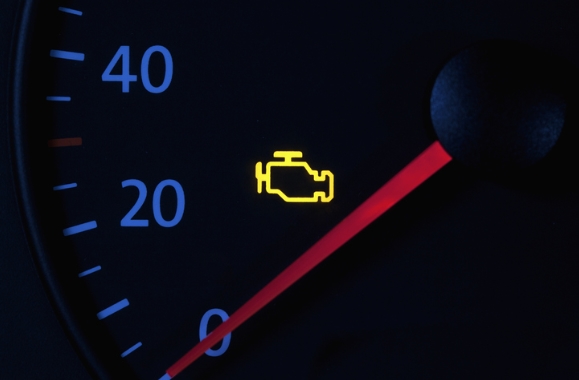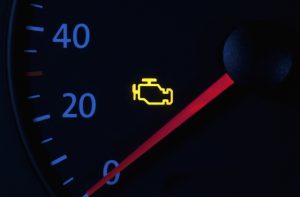Yes, low antifreeze can cause the check engine light to turn on. Your engine needs antifreeze to regulate temperature.
If levels drop, it can trigger the warning light. Antifreeze, also known as coolant, plays a crucial role in maintaining your engine’s temperature. It’s not just about keeping the engine from freezing in winter. It also prevents overheating in summer.
When antifreeze levels are low, your engine can overheat or run inefficiently. This can lead to the check engine light coming on. Understanding this connection can help you take better care of your vehicle. In this post, we’ll explore why low antifreeze can trigger the check engine light and what you can do about it. Stay tuned to learn how to keep your engine running smoothly.
Causes Of Check Engine Light
Low antifreeze can cause the check engine light. It can affect the engine’s performance. Sensors detect low levels of antifreeze. They send signals to the car’s computer. Engine overheating is a common result. This can trigger the warning light. Coolant leaks may also cause the light to come on. Faulty sensors can give false readings. Regular maintenance can prevent these issues. Always check coolant levels. Replace antifreeze when needed. Small problems can lead to big issues.
Sensors play a key role in car health. Temperature sensors monitor engine heat. Coolant sensors check antifreeze levels. If sensors detect a problem, they alert the car’s computer. The check engine light then comes on. Sensors must be working well. Bad sensors can give wrong signals. This can cause unnecessary worry. Regular checks can keep sensors in good shape. Sensor problems can be fixed by a mechanic. Always pay attention to warning lights.
Importance Of Antifreeze
Antifreeze keeps your engine cool. It stops your engine from freezing in winter. It also prevents overheating in summer. Without it, your engine may get too hot or cold. This can cause serious damage.
The coolant system is key for engine health. Antifreeze flows through this system. It moves heat away from the engine. This helps the engine run smoothly. A low level of antifreeze can cause a check engine light. This is because the engine may overheat. Always check your antifreeze level. Keep it at the right level for a healthy engine.
Low Antifreeze Impact
Low antifreeze can affect your engine’s performance. The engine may overheat more often. This can cause it to run less smoothly. Your car might stall or run rough. Fuel efficiency may drop. You might also see white smoke from the exhaust. These are signs of engine trouble.
Low antifreeze can lead to serious damage. The engine can overheat and parts can warp or crack. The head gasket might fail. Coolant leaks can also occur. This might lead to expensive repairs. Always check your antifreeze levels to avoid damage.

Credit: www.cbac.com
Symptoms Of Low Antifreeze
Temperature fluctuations can be a big sign of low antifreeze. The engine might get hot quickly. Then, it may cool down fast. This is not normal. Another sign is strange smells. You might smell something sweet. This is the antifreeze leaking. The heater might not work well. It may blow cold air. These signs mean the engine needs attention. Low antifreeze can cause damage.
Diagnosing Low Antifreeze
Check the antifreeze level first. Open the hood and locate the coolant reservoir. Make sure the engine is cool. Look at the side of the reservoir. There are marks for minimum and maximum levels. Fill if the antifreeze is below the minimum mark.
Visit a mechanic for accurate testing. Mechanics use special tools. They can check antifreeze levels and quality. They might perform a pressure test. This checks for leaks in the system. Fixing leaks ensures the antifreeze stays at the right level.

Credit: www.kseal.com
Preventing Low Antifreeze Issues
Regular maintenance helps keep your car in good shape. It’s important to check fluid levels often. Antifreeze is one of the crucial fluids. Low antifreeze can cause big problems. Check engine light might come on. That can be a sign of trouble.
Create a fluid check routine. Check antifreeze levels every month. Make sure it’s not too low. Use a dipstick if needed. Keep an eye on other fluids too. Oil and brake fluid matter as well. Regular checks help avoid issues. Simple routines save time and money.
Solutions For Low Antifreeze
Low antifreeze can cause the check engine light. Refilling coolant is simple. First, let the engine cool down. Then, open the hood and locate the coolant reservoir. It is usually near the radiator. Carefully open the cap. Pour the coolant until it reaches the fill line. Use the correct type of coolant. Check the owner’s manual if unsure. Close the cap tightly. Start the engine and check for leaks. Regularly check the coolant level to avoid future issues.
Leaks can cause low antifreeze levels. Find the source of the leak. Check hoses and the radiator. Look for wet spots or puddles under the car. If a hose is leaking, it might need replacing. Tighten loose clamps. Use a radiator sealant for small leaks. For large leaks, visit a mechanic. A mechanic can fix the problem correctly. Always monitor the coolant level.
When To Seek Help
A mechanic can find the issue. They have the right tools. The car needs a scan. The scan shows the problem. Low antifreeze might be the cause. It can also be something else. The mechanic will know. They will also fix it.
Low antifreeze can be a danger. It might cause the engine to overheat. Overheating is bad for the car. The car might stop working. Stop driving if the engine is too hot. Call for help. Drive to a safe place first. Do not ignore the check engine light.

Credit: www.reddit.com
Frequently Asked Questions
Will The Engine Light Come On If The Coolant Is Low?
Yes, the engine light can come on if the coolant is low. Low coolant can cause overheating and trigger the warning.
What Are Symptoms Of Low Antifreeze?
Symptoms of low antifreeze include engine overheating, coolant leaks, and a sweet smell from the engine. You may also see steam or hear a hissing noise.
Can Low Fluids Cause Check Engine Light?
Yes, low fluids can cause the check engine light to come on. This includes engine oil, coolant, and transmission fluid. Proper fluid levels are crucial for engine performance and preventing potential damage. Regular maintenance helps avoid these issues.
What Is The Most Common Cause Of A Check Engine Light?
The most common cause of a check engine light is a faulty oxygen sensor. This sensor monitors exhaust emissions.
Conclusion
Low antifreeze levels can trigger the check engine light. Always check your coolant regularly. It prevents engine problems. Your car’s health depends on it. Make sure to address any leaks promptly. Ignoring coolant issues can lead to costly repairs. Keep your vehicle running smoothly.
Regular maintenance is key. Stay informed and take action. Your engine will thank you.

